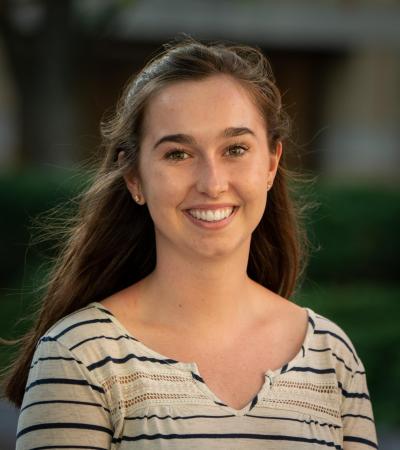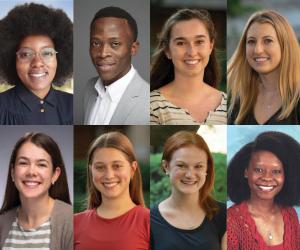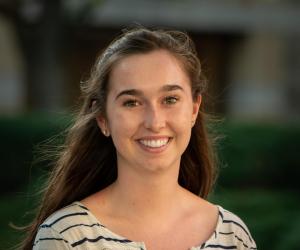This profile was current as of May 2022, when she was part of the on-campus Kellogg community.
Meredith (Mia) Lochhead is interested in the structural response of buildings and the built environment to natural hazard events, particularly in multi-hazard environments. Specifically, Lochhead has worked with Dr. Tracy Kijewski-Correa on several projects in the past, including supporting the development a model to predict structural hurricane damage, as well as a project characterizing the impacts of Hurricane Dorian in the Bahamas, which examined hazard intensity and the performance of the built environment. Currently, Lochhead is supporting the collection, processing, and analysis of data from the 2021 Haiti Earthquake.
Lochhead is also a member of the Hesburgh-Yusko Scholars Program, through which she received funding to conduct a two-month service project in San José, Costa Rica during the summer of 2019. Additionally, during the spring of 2019, Lochhead received a grant from the First Year of Studies to conduct a research trip under mentorship of Professor Eileen Hunt Botting in which she studied portrait representations of Mary Wollstonecraft. Lochhead has also done research work with the Pulte Institute for Global Development, through which she supported the development a comprehensive assessment of community needs in Piura, Peru, as well as additional research at the University of Colorado, Boulder on the performance of informally constructed houses under wind loads.
I am interested in the structural response of buildings and the built environment to natural hazard events, particularly in multi-hazard environments. I am particularly interested in disaster-prone, resource-limited communities, which oftentimes have high percentages of informally-constructed structures. I am particularly interested in tying this work to the notion of community resilience and the ability to adapt to changing and unexpected climate and geohazard conditions.
My current work under Dr. Kijewski-Correa is to support the collection, processing, and analysis of data from the 2021 Haiti Earthquake, which has had over 600 aftershocks around the country. In this role, I review, enrich, and assign photographs and audio recordings from Haitian community members to volunteer engineers, who review and assess imagery to classify the structure and its level of damage. Once the dataset is generated and fully assessed by this transnational collaboration, my focus will shift to data analysis in order to establish lessons learned from this earthquake and what types of construction should be encouraged in the recovery.
- 2022 National Science Foundation Graduate Research Fellowship - She plans to pursue a masters in structural engineering at Stanford University








